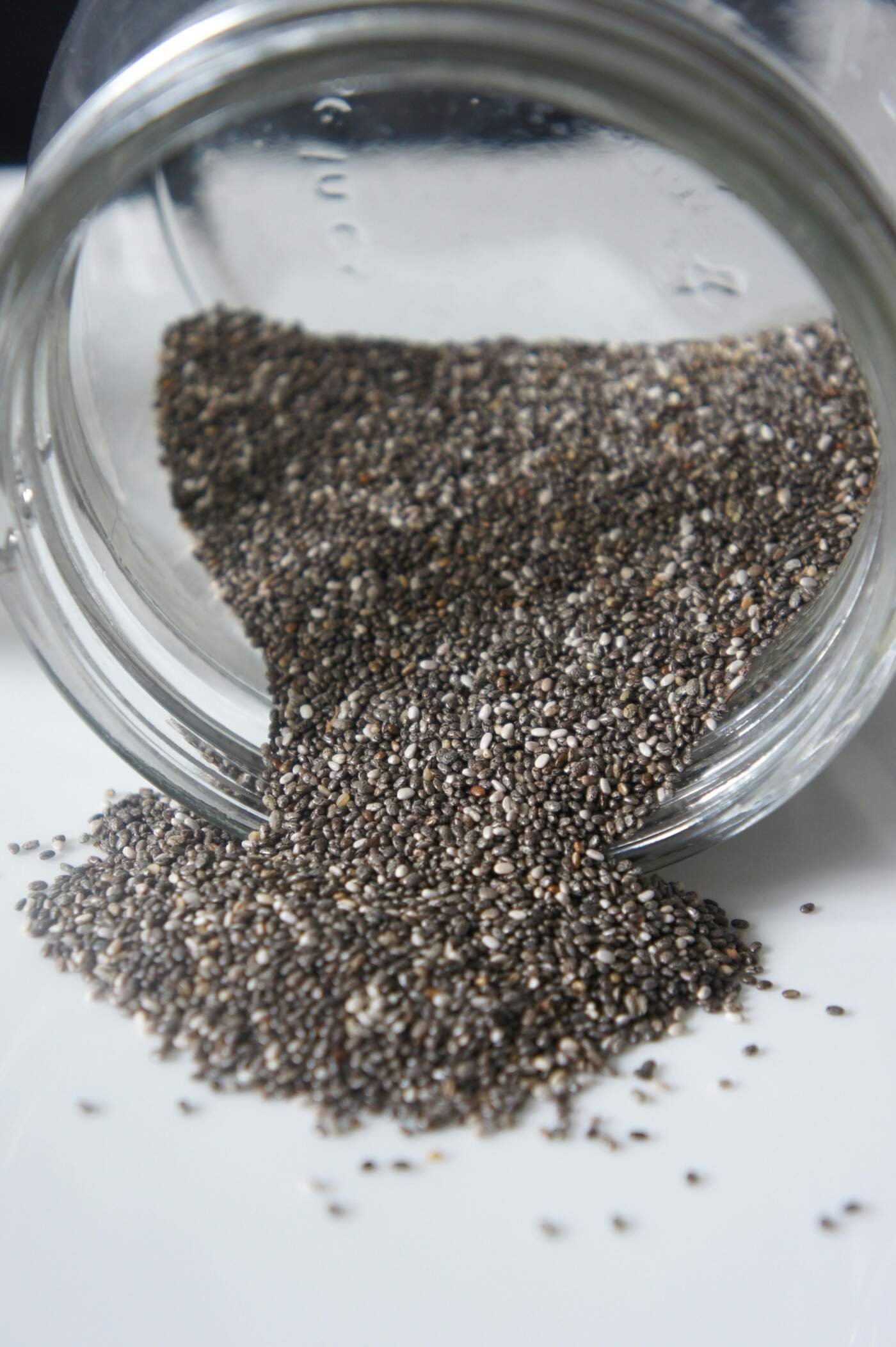The Health Benefits of Chia Seeds for the Body
Chia seeds have gained a reputation as one of the most potent superfoods available today, but their history as a staple in ancient diets dates back centuries. Originating from the plant Salvia hispanica, these small black and white seeds were a vital energy source for Aztec and Mayan warriors. Today, chia seeds have become a nutritional powerhouse, celebrated worldwide for their versatility and health benefits. In this article, we will explore the numerous ways in which chia seeds can support and enhance bodily functions.
1. Rich in Nutrients but Low in Calories
One of the primary benefits of chia seeds is their dense nutritional profile. Just two tablespoons (about 28 grams) of chia seeds contain:
- Fiber: 11 grams
- Protein: 4 grams
- Fat: 9 grams (of which 5 grams are omega-3 fatty acids)
- Calcium: 18% of the Recommended Daily Intake (RDI)
- Magnesium: 30% of the RDI
- Phosphorus: 27% of the RDI
- Zinc: 12% of the RDI
Chia seeds also provide vitamins B1, B2, and B3 and are rich in antioxidants that help protect the body from free radicals, thus reducing the risk of chronic disease. This compact nutrient profile offers essential vitamins and minerals with very few calories, making chia seeds ideal for those aiming to maintain a healthy weight.
2. High Fiber Content for Digestive Health
Chia seeds are an exceptional source of fiber, with nearly 40% of their weight coming from fiber alone. This high fiber content provides several benefits:
- Enhanced digestion: Fiber adds bulk to stool, which helps regulate bowel movements and can prevent constipation.
- Improved gut health: Chia seeds support a healthy gut microbiome by feeding beneficial bacteria in the intestines, which is essential for digestion, nutrient absorption, and immune function.
- Satiety: The high fiber content helps increase feelings of fullness, reducing overall calorie intake and assisting in weight management.
When mixed with water, chia seeds absorb up to 12 times their weight, forming a gel-like consistency. This quality not only aids in digestion but also allows chia seeds to act as a natural thickening agent in recipes.
3. Abundant Omega-3 Fatty Acids for Heart Health
Chia seeds are one of the richest plant-based sources of omega-3 fatty acids, particularly alpha-linolenic acid (ALA). Omega-3 fatty acids are known to:
- Reduce inflammation: Chronic inflammation can lead to various health issues, including heart disease. Omega-3s help to reduce inflammation in the body, lowering the risk of such conditions.
- Lower cholesterol levels: Omega-3s contribute to reducing LDL (bad) cholesterol levels, supporting overall cardiovascular health.
- Improve blood pressure: Studies suggest that omega-3s can help lower high blood pressure, which is a major risk factor for heart disease.
Including chia seeds in the diet can, therefore, benefit heart health by decreasing inflammation, managing cholesterol levels, and promoting balanced blood pressure.
4. Excellent Source of Antioxidants
Antioxidants are critical for preventing oxidative stress, which can lead to cell damage and accelerate aging. Chia seeds contain powerful antioxidants, such as chlorogenic acid, caffeic acid, myricetin, and quercetin, which offer multiple benefits:
- Reduced risk of chronic diseases: Antioxidants help combat free radicals, potentially reducing the risk of cancer, heart disease, and other chronic conditions.
- Slowing signs of aging: Antioxidants protect skin cells from damage, potentially delaying wrinkles, age spots, and other signs of aging.
- Enhanced immune function: By minimizing cellular damage, antioxidants support a robust immune system, which is essential for warding off illness and infection.
5. Plant-Based Protein to Support Muscle Health
Chia seeds are an excellent protein source, particularly valuable for vegetarians and vegans. Protein is essential for muscle growth, repair, and maintenance, making chia seeds an ideal addition for those looking to build or sustain muscle. Additionally, protein is essential for:
- Cellular repair: Protein helps repair tissues and is necessary for healthy skin, hair, and nails.
- Hormone regulation: Protein is vital for synthesizing enzymes and hormones that regulate bodily processes, such as metabolism and mood.
Including chia seeds in a balanced diet provides a good source of protein, supporting muscle health and overall bodily functions.
6. Bone Health and Calcium Content
Chia seeds offer an impressive amount of calcium, containing about 18% of the RDI per ounce, which is even higher than most dairy products. Calcium is essential for maintaining bone density and strength, and chia seeds’ other minerals, like magnesium and phosphorus, also contribute to bone health. Benefits include:
- Bone strength: Calcium, magnesium, and phosphorus are crucial for bone density, reducing the risk of osteoporosis and fractures as we age.
- Joint health: Magnesium in chia seeds also helps to alleviate muscle and joint pain, making it beneficial for athletes or individuals with arthritis.
By incorporating chia seeds into the diet, individuals can support bone health, even if they follow a dairy-free lifestyle.
7. Blood Sugar Stabilization
Chia seeds can play a significant role in regulating blood sugar levels. The high fiber content helps slow down the absorption of sugar in the bloodstream, preventing sharp blood sugar spikes after meals. This stabilization is particularly beneficial for:
- Diabetes management: Steady blood sugar levels are essential for those with diabetes or insulin resistance, as chia seeds can reduce blood sugar fluctuations.
- Reduced cravings: Balanced blood sugar levels can help control appetite and reduce unhealthy cravings, supporting weight management and reducing the risk of overeating.
Studies have shown that regular chia seed intake can improve blood sugar regulation, benefiting overall metabolic health.
8. Hydration and Electrolyte Balance
When chia seeds absorb water, they create a gel-like consistency, which can aid in hydration. This property makes chia seeds beneficial for athletes and individuals with active lifestyles:
- Hydration support: The gel-like formation helps retain water in the body, preventing dehydration.
- Electrolyte balance: Chia seeds provide essential electrolytes, like potassium and magnesium, which are crucial for muscle function, heart health, and maintaining hydration levels.
By adding chia seeds to smoothies, water, or yogurt, individuals can support hydration and maintain electrolyte balance during exercise or hot weather.
9. Weight Management and Appetite Control
Chia seeds’ high fiber and protein content make them an ideal food for those aiming to manage their weight. The gel-like consistency they form in the stomach can help increase feelings of fullness and reduce hunger:
- Reduced calorie intake: Chia seeds help curb hunger by keeping you full for longer periods, reducing the tendency to overeat or snack on high-calorie foods.
- Slow digestion: Fiber slows digestion, meaning the body absorbs nutrients more gradually, helping sustain energy levels and curb cravings.
Incorporating chia seeds into meals can therefore support weight loss or maintenance by helping control appetite and promoting satiety.
10. Versatile and Easy to Incorporate into Your Diet
Chia seeds are highly versatile and can be used in a variety of recipes. Their mild flavor allows them to blend seamlessly into many dishes without altering the taste, making it easy to include them in your daily diet. Some popular ways to enjoy chia seeds include:
- Smoothies and shakes: Adding chia seeds to smoothies provides extra fiber and protein.
- Baking: They can be used in bread, muffins, and pancakes to boost nutrient content.
- Chia pudding: Soaked chia seeds can be combined with milk or a milk substitute to create a nutritious pudding.
- Toppings: Sprinkle chia seeds on salads, yogurt, or cereal for a quick nutritional boost.
Chia seeds are also gluten-free, making them suitable for individuals with gluten intolerance or celiac disease.
Final Thoughts
Chia seeds may be small, but they pack a powerful punch of nutrients and health benefits. From supporting digestive health to reducing inflammation and promoting heart and bone health, chia seeds are a versatile superfood that can easily be included in any diet. Whether you are looking to boost your energy, improve your hydration, or manage your weight, chia seeds offer a simple and effective way to enhance overall health.



Leave a Comment